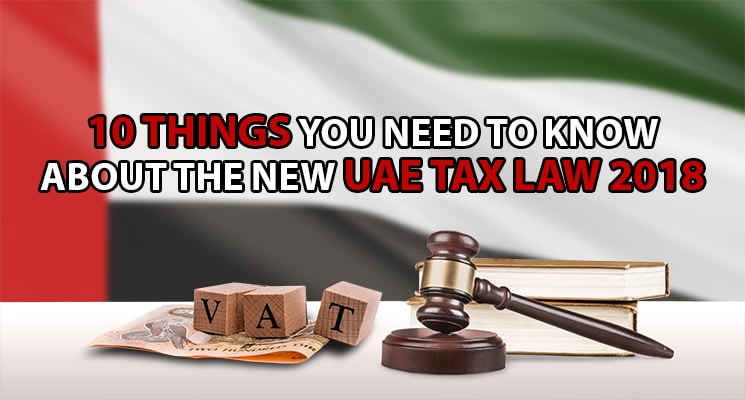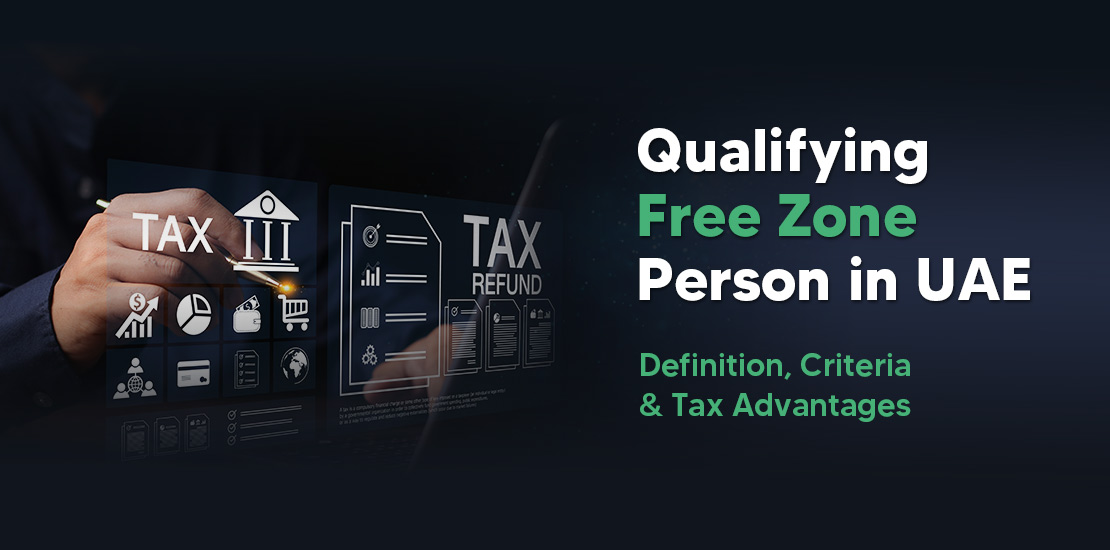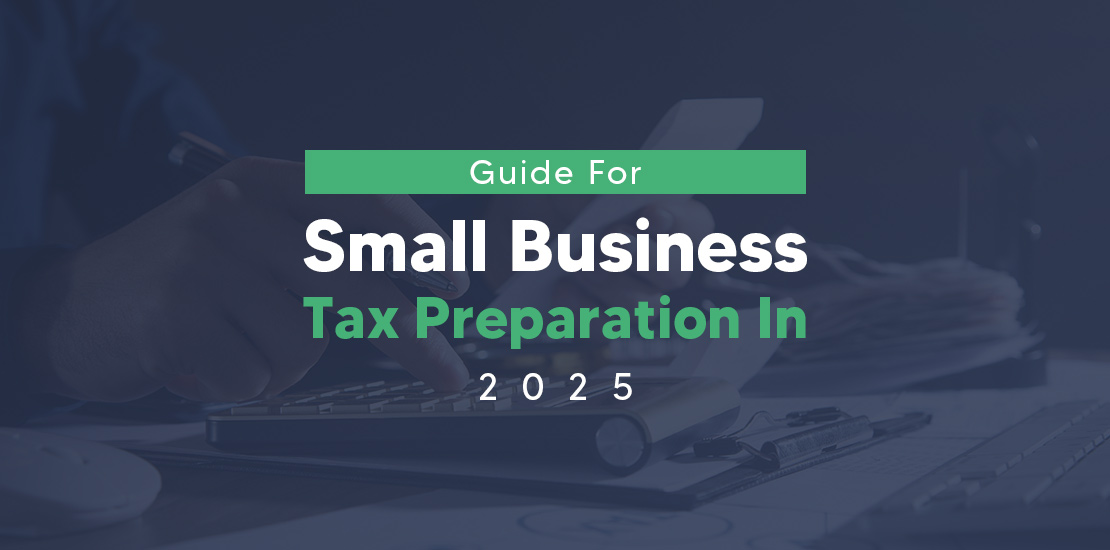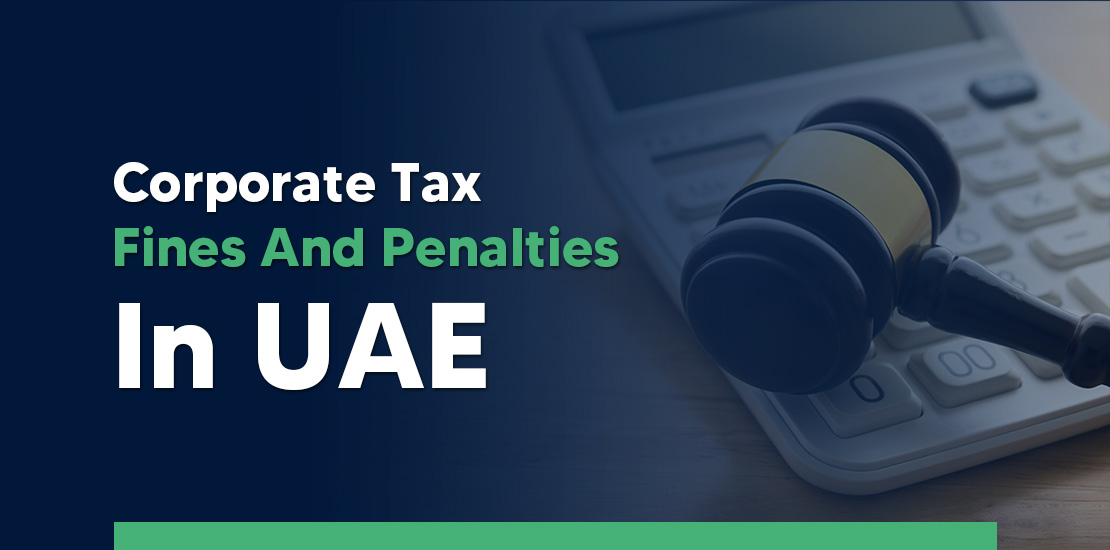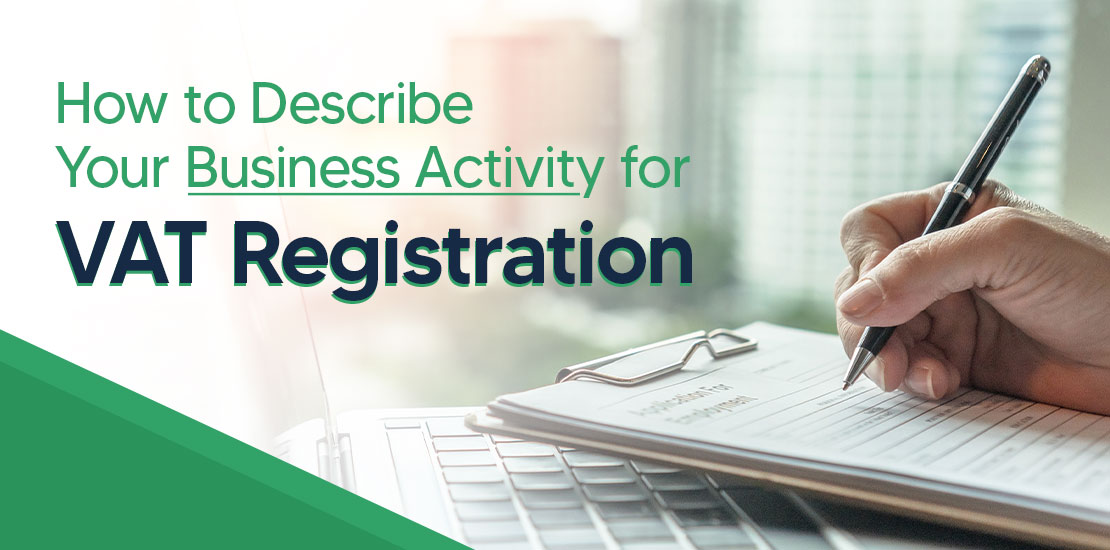Table of Contents
The legal framework in the United Arab Emirates has been imminent and divergent, to bring about progressive changes and development in the country. Aiming similar outcomes for the region, the new UAE tax law was introduced recently on 1st January 2018.
According to the new tax law in Dubai – UAE, Value Added Tax (VAT in UAE) is applicable to various categories of businesses and services. All the commercial activities are now subjected to the payment of five percent (5% VAT) value-added tax VAT in Dubai, UAE.
NEW TAX LAW IN BRIEF
The Federal Decree Law No. (8) Of 2017 Value Added Tax stated by the Ministry of Finance (MoF) summaries the tax possibilities within the country; the VAT rate, the responsibilities that will be carried out by the collection of these taxes for the growth of the country; the taxes that will be applied to the supply chain. The new UAE tax law also defines the UAE tax registration and deregistration, as well as the mandatory threshold for tax registration, tax group, registration exceptions, tax registration for government bodies as well as voluntary registration. The Article 85 of the UAE VAT Law, showcases the effective date of this Decree – as 1 January 2018.
This new UAE tax law environment in the country has also brought about a series of confusion and uncertainties. Moreover, businesses and commercial entities are also having a hard time understanding the new tax law in Dubai and all other parts of the UAE.As consumers, traders and end-users across the UAE need to familiarize themselves with a value-added tax (VAT) system and to be able to identify their role as taxpayers, we at Shuraa Tax Consultants offer you suitable help in this regard.
NEVERTHELESS, HERE ARE THE 10 THINGS THAT YOU MUST KNOW ABOUT THE NEW UAE VAT TAX LAW:
- The VAT law in UAE is based on the VAT guidelines agreed in the Unified GCC Agreement for Value Added Tax (VAT) published in the Official Gazette on 21 April 2017. However, specifications on the implementation of VAT in UAE incorporated in Federal Tax Authority FTA regulations.
- Businesses operating across UAE need to adhere to the changes in the cost structure, compliances as well as organizational structure as well as file tax returns on Monthly and Quarterly basis due to the VAT implementation in UAE and comply with the UAE VAT requirements and updates at all times.
- The mandatory threshold to register for VAT in UAE is Dh375,000 and the voluntary threshold to register for VAT is Dh187,500. Business in the process of establishment/company formation in UAE needs to get their VAT registration under the new UAE VAT law within 30 days of establishing the company/business, while older companies had to register before 31 December 2017 to avoid penalties.
- Companies in UAE must obtain Tax Registration Number from the Federal Tax Authority to pay VAT. The Tax Registration Number also called for TRN number or tax identification number which is required to print all the invoices and bills of the company. The UAE TRN Number is also used while filing tax returns and dealing with the FTA.
- Companies and business entities in the UAE must follow a four-processes 1) Obtain VAT registration from the FTA 2) Charge VAT in UAE on taxable goods or services; 3) Reclaim any UAE VAT they have paid on business-related goods or services; 4) keep a range of commercial and business records for FTA’s evaluation.
- As of now, FTA has stated that exemption on VAT is on basic education, healthcare, residential real estate, local transport and zero-rate on some sector. The VAT exemption or zero-rating in these commercial sectors are currently a huge saver for VAT payers in UAE. However, except VAT exemption or zero-rated supplies all other goods and services in the UAE, even if supplied by the governmental bodies and governing authorities are chargeable to VAT.
- VAT penalties are outlined by the Federal Tax Authority and can be applied to 1) companies and businesses failing to register for VAT in UAE; 2) companies and businesses, who do not submit a tax return or make a payment within the determined period; 3) companies and businesses, who do not maintain the records as per the VAT guidelines of the tax legislation; 4) any kind of tax evasions, deliberate act or omission was done intentionally to violate the provisions the FTA will impose VAT penalties.
- As per the new UAE Tax Law, the credit of input VAT is not allowable on the expenses incurred for producing exempted supplies. Moreover, input tax cannot be claimed if it is incurred in respect of specific expenses such as obtaining a vehicle for rent or lease for personal use, entertainment expenses, etc. For e.g. employee entertainment as per Article (53) of federal Decree-Law No (8) of 2017 on Value Added Tax.
- In case of a UAE nonresident, the new UAE Tax law who makes supplies of goods and services in the country requires registration in accordance with the provisions of the Decree-Law. The Federal Tax Authority shall register him with effect from the date on which he or she started making supplies in the UAE. It could be an earlier date if agreed by the FTA and the non-resident entity.
- All the UAE companies and businesses within the country – whether registered for VAT or not, must retain their financial records. These financial records include Balance Sheet, Profit and Loss reports, fixed assets reports, payroll sheet, reports on inventory, stock level reports and accounting records (including payments, receipts, purchases, sales, revenues and expenses).
Concludingly, it is also important to know that almost all commercial individuals or companies require to change their financial management practices as well as core operations to follow the procedures levied by the legislation in terms of accounting books and records. Also, the technology of accounting practices and human resources such as chartered accountants, tax advisers and UAE tax consultants are a must!
The most easy and quick solution to maintain all sorts of communication and understand guidelines provided by the Federal Tax Authority is to get in touch with SHURAA TAX CONSULTANTS.
SHURAA TAX CONSULTANTS support you with each and every requirement for UAE VAT & Dubai Taxation Services. Speak to our Tax consultants to understand the taxation system in UAE. Call us on +971508912062 or visit www.shuraatax.com.



